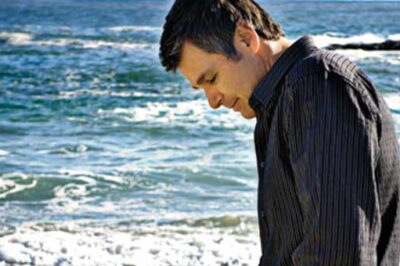God is not moved by political correctness; He’s moved when His people humble themselves with fasting and prayer to seek His face. Here’s how to do more than just talk about fasting.
The book of Joel begins with a description of a land so desolate even the palm tree has withered. He describes a severe judgment that results in famine and utter devastation. Yet God offers a glimmer of hope even to a people deemed worthy of such destruction when He says, “Turn to Me with all your heart, with fasting, with weeping, and with mourning” (Joel 2:12). Joel calls the people to, “Rend your heart, and not your garments; return to the Lord your God, for He is gracious and merciful, slow to anger, and of great kindness; and He relents from doing harm” (v. 13).
I see evidence throughout Scripture that the men and women of God who pressed in with fasting and prayer, even in difficult times, flourished. I don’t know about you, but I take much more comfort and place much more faith in the promises of God than I do in the promises of government—any government!
Fasting That Changed Destinies
Until we leave this world and cross into the presence of God, we will not know the full impact that unknown, humble, praying saints have had on the destiny of cities, nations and cultures. We need to meditate on the examples that we do have because they are intended to inspire and encourage us to step out of our own routines and pursue God in like manner.
Look at what happened in Nineveh. God chose one man named Jonah to go and preach repentance to the people of the vast city that stood as the capital of the Assyrian empire. The wickedness of the city had come up before the Lord, so He sent a reluctant prophet to go and pronounce judgment. Aren’t you glad that we serve a merciful God?
Jonah finally stopped procrastinating, entered the city and started proclaiming, “Yet forty days, and Nineveh shall be overthrown!” (Jon. 3:4).
Needless to say, his words created quite a stir. Even though that city was so large that it took three days to cross, word spread very quickly.
“So the people of Nineveh believed God, proclaimed a fast, and put on sackcloth, from the greatest to the least of them. Then word came to the king of Nineveh; and he arose from his throne and laid aside his robe, covered himself with sackcloth and sat in ashes. And he caused it to be proclaimed and published throughout Nineveh by the decree of the king and his nobles, saying, ‘Let neither man nor beast, herd nor flock, taste anything; do not let them eat, or drink water.
“‘But let man and beast be covered with sackcloth, and cry mightily to God; yes, let every one turn from his evil way and from the violence that is in his hands. Who can tell if God will turn and relent, and turn away from His fierce anger, so that we may not perish?’” (Jon. 3:5-9).
Nineveh was a Gentile city, and the people there were not known to be God-fearing. But the king took the prophet’s warning so seriously that he even ordered the animals to fast! They had seen the judgment of God in other lands enough to know that He wasn’t kidding. Conviction hit hard, and the people repented, humbling themselves with prayer and fasting.
As a result, God relented. The entire city was spared—at least in that generation—because they fasted and cried out to God with repentant hearts. Their final judgment and destruction did not come until roughly 200 years later, after God once again saw their wickedness and sent prophet after prophet to warn them. But that time the people refused to turn away from their wickedness and were destroyed.
In 1620, Christians fleeing the religious oppression of England landed along the shores of what is now Plymouth, Mass. History records that it was very difficult that first year for the Pilgrims who formed Plymouth Colony. About half of them died of starvation over the winter. They were at a severe disadvantage because most of them knew nothing of how to farm, hunt or fish in this new, wild territory.
A Native American who came to be known by the Pilgrims simply as Squanto helped them plant crops. He showed them how to fertilize the crops with fish that they caught. He also tried to mend very bad relationships between the settlers and the other native tribes.
Things were looking more promising until the spring of 1623, when a severe drought threatened all of the crops that would sustain them through the winter.
Their lives hung in the balance without rain. They prayed and encouraged each other with specific verses from Scripture, like: “Fear not, for I am with you; Be not dismayed, for I am your God. I will strengthen you, yes, I will help you, I will uphold you with My righteous right hand” (Is. 41:10).
They clung to such promises in faith that God would indeed hear their cry and help. William Bradford, the governor of Plymouth Colony, noted this portion of Scripture in his journal, reflecting on the events of that time. It hadn’t rained for nearly three months, so Bradford called for a fast.
The Pilgrims agreed and fasted from sunrise throughout the day. The sky remained clear, without the promise of rain. But by that nightfall, clouds like no one had seen in months began to form. Before long a gentle, soaking rain began to thoroughly replenish the land and their crops.
The neighboring Indians, afflicted by the same drought, were amazed at how the Pilgrims’ God answered the Pilgrims’ dire need when they humbled themselves and prayed. The miracle made a lasting impression on the neighboring Indians. The Pilgrims were spared because of a fast.







Leave a Comment
You must be logged in to post a comment.